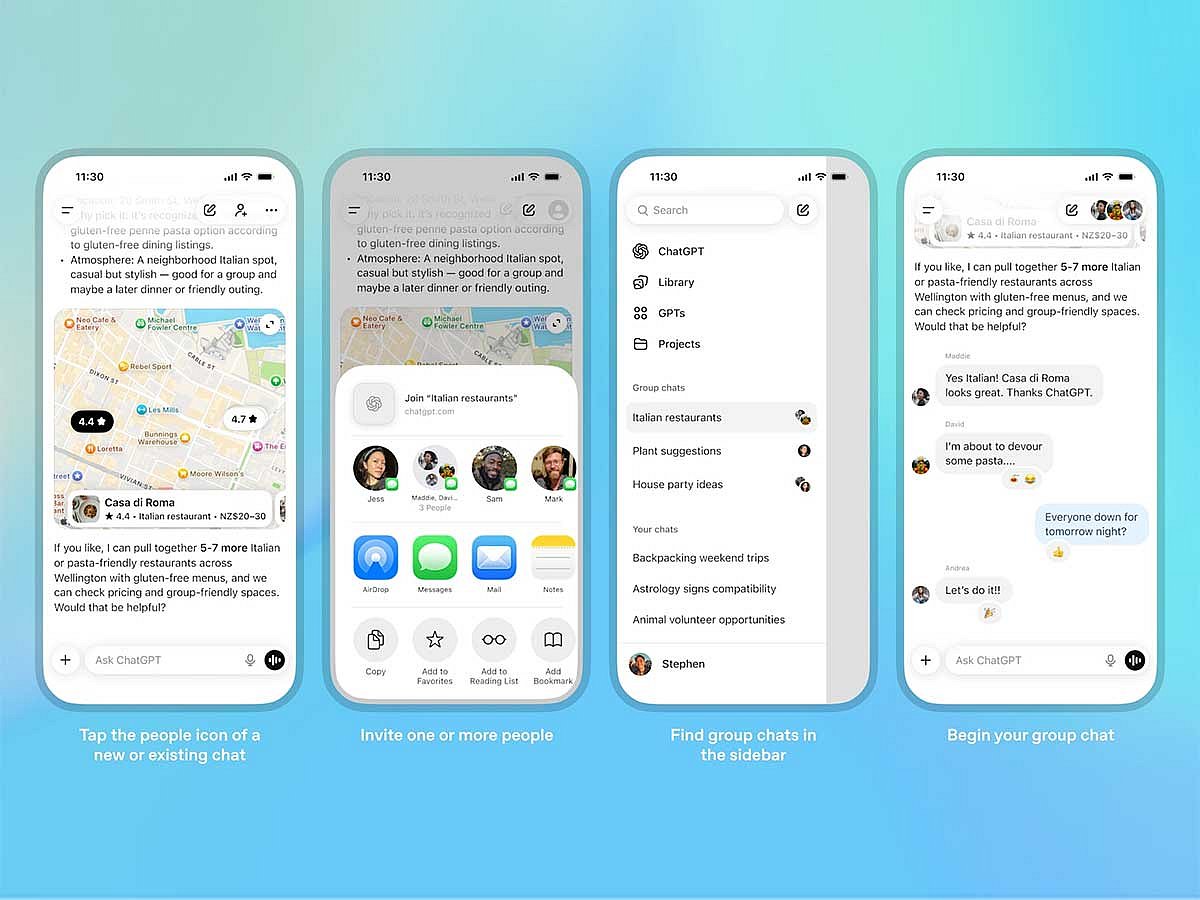ChatGPT launches group chats globally, letting users collaborate with AI and friends
Chat with up to 20 participants brings shared AI sessions to Free, Go, Plus and Pro users

OpenAI has announced ChatGPT’s new group chat feature is now available globally for users on Free, Go, Plus and Pro plans—marking a shift from one-on-one AI interaction to shared conversational spaces.
The rollout follows a pilot conducted in markets such as Japan and New Zealand earlier this month. With the new functionality, users can invite up to 20 participants into a chat alongside ChatGPT, who can join the conversation dynamically based on context.
To start a group chat, users tap the 'people' icon in the ChatGPT app, create a chat link and invite others. Users appear with profile names and images; the AI assistant is also aware of group context, choosing when to respond or remain silent, and can react with emojis.
OpenAI emphasises privacy: messages from users are not counted against rate limits, only the AI’s replies are; and the company says group chats do not add to the AI’s memory unless explicitly configured by users.
Industry watchers view the update as part of the broader trend toward collaborative AI experiences, where tools are less about solo productivity and more about shared workflows. For example, rival app Poe from Quora also announced group chat support across multiple AI models in its platform.
The implications are significant: groups in ChatGPT could be leveraged for team brainstorming, planning events, coordinating research or crafting documents—all with AI support embedded in the discussion. At the same time, the move raises questions around group-chat moderation, privacy in multi-user context and how AI models manage richer conversational dynamics.
From a product strategy perspective, this rollout signals OpenAI’s ambition to evolve ChatGPT beyond a personal assistant into a platform for shared interaction. Whether this feature will reshape how people use ChatGPT—or whether it will encounter friction from user behaviour, moderation demands or technical scalability—remains to be seen.
Network Links
GN StoreDownload our app
© Al Nisr Publishing LLC 2026. All rights reserved.